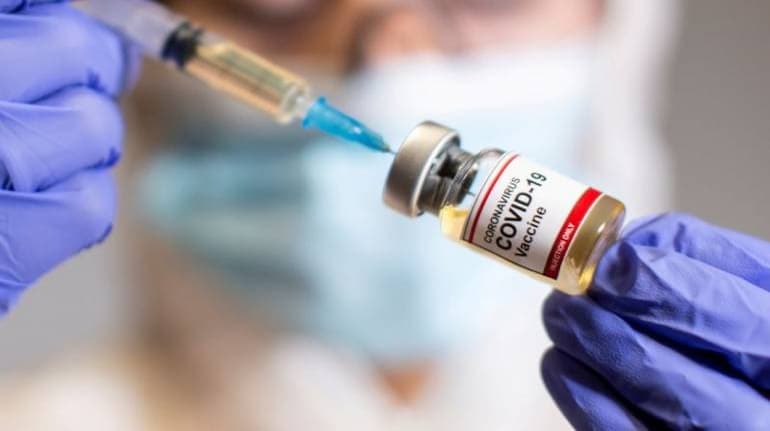



The Subject Expert Committee (SEC) of the Central Drugs Standard Control Organisation (CDSCO), India's drug regulator, which met on January 1, has recommended conditional use of Serum Institute of India's (SII) COVID-19 vaccine, sources said. The Drug Controller General of India (DCGI) would take the final decision on the vaccine on the basis of the SEC recommendation.
The SEC is also reviewing the emergency use applications of Bharat Biotech and Pfizer for their COVID-19 vaccines.
What is emergency use approval?In an emergency situation, like a pandemic that is causing great human loss and damage to the economy, it may not be possible to have all the data related to safety and efficacy that regulators expect in normal times. The regulator will have to rely on preliminary data to assess whether a particular vaccine or drug will actually save lives and whether its benefits outweigh risks. The regulators may also take a cue from what the other regulators have done.
What is the legal position in India about emergency use?Unlike in the US, in India, the Drugs and Cosmetics Act doesn’t have any specific provision that allows the special use of drugs and other medical products during emergencies like pandemics. But if there is an emergency and unmet medical need, and the drug or vaccine in question has evidence of safety and efficacy, the Indian regulator has the flexibility to approve the drug, on condition that the vaccine maker will have to do post-marketing surveillance.
Why vaccine may be different from drugs? The approvals of HCQ, Remdesivir and Convalescent Plasma were given, based on limited clinical data, but without randomised clinical trials. Experts say things are different for vaccines as vaccine developers have to conduct double-blind randomised control trials - where the volunteers who get the vaccine (vaccine arm) are compared to those who get placebo (control arm). To ensure there isn’t any bias, both the person taking the vaccine and one who is administering it are 'blinded', which means they don't know whether it is a vaccine or a placebo.
On what data the SEC and DCGI based their approval?In the SII's case - the SEC and DCGI have reviewed the emergency use applications based on the data generated from the AstraZeneca-University of Oxford clinical trial from the UK and Brazil. The experts and regulator will also review the interim data for safety and immunogenicity of all participants from the SII's Phase 2/3 bridging trial in India.
The UK’s MHRA assessed the efficacy of the vaccine based on 131 events in 11,636 people merging data across two trials from the UK and Brazil.
What is the efficacy of SII vaccine?So far, the data related to SII's Phase 2/3 bridging trial in India hasn't been published, and we don't know what is the efficacy of the vaccine with respect to India trial. The participants, who took two full doses of the vaccine, appeared to be only 62 percent successful at preventing disease, while those who got a half dose, followed by a full dose were about 90 percent immune. That latter analysis was conducted on a smaller subset of only 2,741, all from the UK. AstraZeneca claims that the primary efficacy endpoint based on a pooled analysis showed that the vaccine was 70.4 percent effective at preventing symptomatic COVID-19 occurring more than 14 days after receiving two doses of the vaccine. The UK regulator said that vaccine efficacy appeared to rise to 80 percent in a smaller group of volunteers who were given the two doses roughly three months, rather than four weeks apart.
A secondary efficacy endpoint of prevention of severe disease demonstrated no cases of severe infections or hospitalisations in the vaccine group.
How many doses, gap between first and second doses? The UK regulator recommended two doses administered with an interval of between four and 12 weeks. India expected to follow a similar pattern.
Price of SII vaccine The company has indicated a price of $3-$4 a dose for governments, making it the most affordable vaccine. For the first wave of the rollout for 300 million people, the Indian government is expected to foot the bill.
Cold chain requirements The vaccine can be stored at 2-8 degrees temperature, which means that it can be stored in normal refrigerators for up to six months, making it easier to administer in countries like India.
How many doses will be available following approval?Serum Institute of India (SII) has stockpiled 75 million doses of AstraZeneca-Oxford University COVID-19 vaccine, and will be increasing it to 100 million doses by the first week of January. About 50 percent of the vaccine supplies would go to India and the rest would go to COVAX, the WHO's programme to deliver COVID-19 vaccine to low and middle-income countries. However, during the initial months, India would get priority in supplies. The capacity is enough for Indian government to administer 2.5 crore people. About 80 percent of the vaccine is shipped directly from a manufacturer to State and divisional vaccine stores, depending on the airport availability. About 20 percent of the annual need is kept as a buffer in the four Government Medical Store Depots (GMSDs) where stock is maintained for a maximum of three months. Serum said they are ready to ship the vaccines following approval.
Discover the latest Business News, Sensex, and Nifty updates. Obtain Personal Finance insights, tax queries, and expert opinions on Moneycontrol or download the Moneycontrol App to stay updated!
Find the best of Al News in one place, specially curated for you every weekend.
Stay on top of the latest tech trends and biggest startup news.